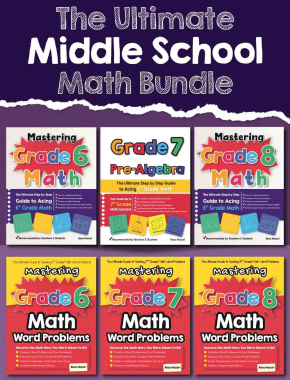Rules of Exponents
The rules of exponents are a set of mathematical operations that can be performed on numbers with exponents. Some of the most commonly used exponent’s rules are described in this article.
[include_netrun_products_block from-products="product/6-south-carolina-sc-ready-grade-3-math-practice-tests/" product-list-class="bundle-products float-left" product-item-class="float-left" product-item-image-container-class="p-0 float-left" product-item-image-container-size="col-2" product-item-image-container-custom-style="" product-item-container-size="" product-item-add-to-cart-class="btn-accent btn-purchase-ajax" product-item-button-custom-url="{url}/?ajax-add-to-cart={id}" product-item-button-custom-url-if-not-salable="{productUrl} product-item-container-class="" product-item-element-order="image,title,purchase,price" product-item-title-size="" product-item-title-wrapper-size="col-10" product-item-title-tag="h3" product-item-title-class="mt-0" product-item-title-wrapper-class="float-left pr-0" product-item-price-size="" product-item-purchase-size="" product-item-purchase-wrapper-size="" product-item-price-wrapper-class="pr-0 float-left" product-item-price-wrapper-size="col-10" product-item-read-more-text="" product-item-add-to-cart-text="" product-item-add-to-cart-custom-attribute="title='Purchase this book with single click'" product-item-thumbnail-size="290-380" show-details="false" show-excerpt="false" paginate="false" lazy-load="true"]

Step-by-step to find the Rules of Exponents
The following rules are the most commonly used exponent’s rules:
- Product of powers: When multiplying two numbers with the same base, add the exponents. For example, \((a^m)(a^n) = a^{(m+n)}\)
- Quotient of powers: When dividing two numbers with the same base, subtract the exponent of the denominator from the exponent of the numerator. For example, \((a^m)/(a^n) = a^{(m-n)}\)
- Power of a power: When raising a number with an exponent to another power, multiply the exponents. For example, \((a^m)^n = a^{(mn)}\)
- Power of a product: When raising a product of numbers to a power, raise each factor to that power. For example, \((ab)^n = a^n * b^n\)
- Power of a quotient: When raising a quotient of numbers to a power, raise the numerator and denominator to that power. For example,\((\frac{a}{b})^n\) \(=\frac{a^n}{b^n}\)
- Zero power: any nonzero number raised to the power of zero is \(1\), for example, \(a^0 = 1\)
- Negative exponent: When a number is raised to a negative exponent, it is equivalent to the reciprocal of the number raised to the positive exponent. For example, \(a^{-n} =\frac{1}{a^n}\)
- Exponent of \(1\): any nonzero number raised to the power of \(1\) is the number itself, for example \(a^1 = a\)
Related to This Article
More math articles
- Using Number Lines to Represent Integers
- 7th Grade New York State Assessments Math Worksheets: FREE & Printable
- 4th Grade MCAP Math Worksheets: FREE & Printable
- 8th Grade WVGSA Math Worksheets: FREE & Printable
- 3rd Grade Georgia Milestones Assessment System Math Worksheets: FREE & Printable
- The Challenge for The Future of Math Education
- SAT Math Vs. High School Math
- Intelligent Math Puzzle – Challenge 88
- How to Solve Triangles Problems? (+FREE Worksheet!)
- The Ultimate 7th Grade MAP Math Course (+FREE Worksheets)



















What people say about "Rules of Exponents - Effortless Math: We Help Students Learn to LOVE Mathematics"?
No one replied yet.